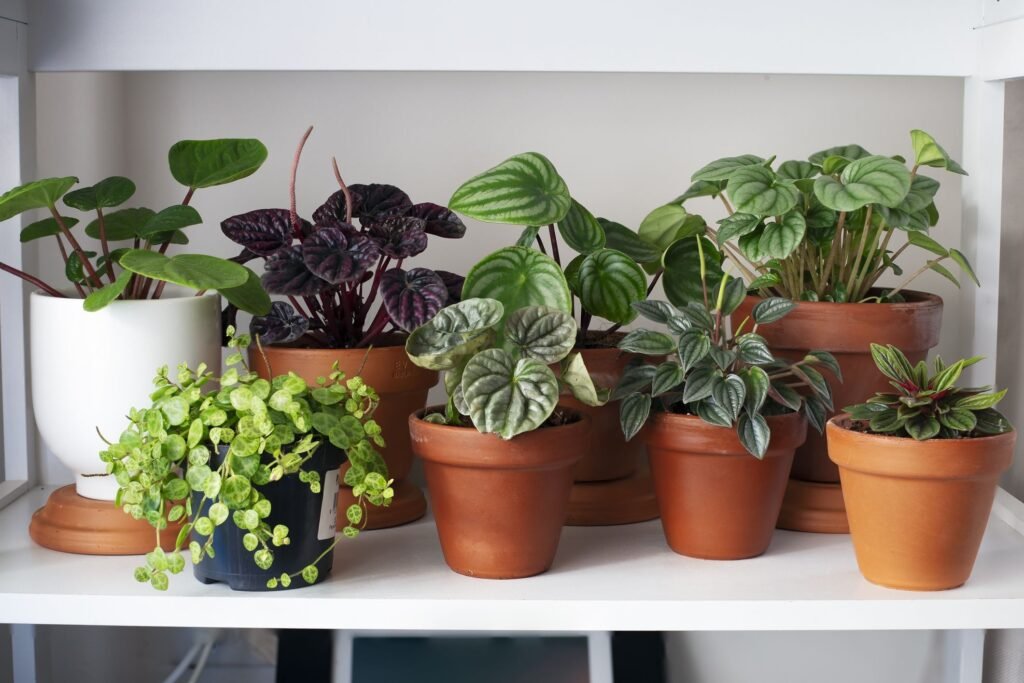No matter how hard you try to fight bugs in your yard or garden, it will always be a losing battle, especially if you’re trying to treat your property for all bugs and pests. The fact is, you need some bugs for a healthy landscape and ecosystem. The best way that both you and your garden can benefit is to use beneficial and native bugs as an ally against the detrimental pests that only bring devastation to your plants.
Without a doubt, there are some nuisances that can overwhelm your plants overnight and kill all your growing efforts. That’s why I’ve put together this list of five beneficial bugs for your garden that will work for you to fight against the pesky ones, and three pests you need to treat immediately.
5 Beneficial Bugs for Your Garden
Ladybugs
Native ladybugs, also known as lady beetles, are a great sign that your garden is being taken care of, and are considered good luck beyond just superstition! Ladybugs eat aphids, mites, whiteflies, scales, and thrips. Aphids are a certain enemy to plants – they will destroy indoor houseplants, garden fruits and vegetables, and even landscapes shrubs and flowers. However, ladybugs, especially in the larval stages, are your garden’s best friends because that’s when they truly gorge on aphids. Tip: When you’re desperate for a safe, organic solution to your garden pests, you can even purchase these native ladybugs online. You must ensure they’re native, though, as introducing types like the Mexican bean beetle can be even worse for your garden.
Wasps
If you’ve ever grown a fruit or vegetable garden, you are very familiar with the uphill battle with caterpillars. Not only will caterpillars annihilate your fruits and veggies, but they will also destroy flower petals, roots, and stems to your beautiful ornamentals. One of the best fighters against caterpillars is wasps. Again, like most bugs in their larval stage, wasps do the most damage to pests when they’re in their younger stages. It’s not common knowledge that a wasp actually begins its life as a parasite, but it’s true! A female wasp will sting her caterpillar prey and lay her eggs inside her host. Once the larvae hatch, they will eat their way from the inside out, destroying the caterpillar in the process. Tip: if you see a caterpillar with white sacs all over it, leave it alone! The white sacs are wasps eggs and the caterpillar will meet its natural demise without intervention.
Mantis
They may look innocent enough, but truth be told, mantises are actually pretty ruthless insects. Sure, they’ll eat any bug that crosses their paths, even other mantises, but that also means they will absolutely devour the pests you want gone. Don’t worry, mantises want these pests gone, too.
Bees
From honey bees, carpenter bees, bumble bees, leafcutter bees, and many, many more, bees are your absolute best friend in the garden year after year. Bees are responsible for the ongoing lifecycle of every plant in your yard! The best way to attract them is to ensure you maintain pollinator flowers and nectar flowers as a crucial element to your landscape and to avoid harmful sprays that will hurt these friends. Tip: Did you know that a lot of what we consider to be “weeds” in the garden are actually pollinators for bees? Take, for instance, dandelions. Dandelions used to be widely known as a weed, however, it is becoming more widespread knowledge that this beneficial flower plays an incredibly vital role in the life cycle of bees. Learn more about the native plants that grow around you to determine what is a bee friend!
Dragonfly
Have you ever seen a dragonfly snatch another flying bug right out of the air, mid-flight? It’s incredible to watch! If you’ve witnessed termite swarms pop up near any dead wood laying on the edge of the forest floor, or near a newly-mulched garden, you may have also witnessed a dragonfly feast. Dragonflies are a top predator in your yard and will eat even mosquitos. Tip: Maintain a tidy edge of your garden or landscape with shrubs and bushes to offer hiding places for dragonflies. Once you maintain your shrubs and bushes, the dragonflies will do the rest!

3 Pests to Get Rid of Immediately
Aphids
A well-known killjoy for the garden enthusiast, aphids are truly a thorn in the flesh. Aphids will attach themselves in large colonies onto the stem of your plant (don’t worry, they’re not too picky about which kind) and will suck the sap carrying vital nutrients straight from the plant. This causes browning of the leaves and stems, and when left untreated, dying plants. Tips: A natural way to treat aphids would be to spray them with a heavy stream of water to ensure to knock them off the plant. You can also introduce native ladybugs to your garden to feast on these pests. Additionally, diluted insecticidal soap or neem oil sprayed on the plant in the evenings will also help deter these pests.
Hornworm
Most easily identified by the black horns they carry during their caterpillar stages, hornworms do the most damage to the nightshade family plants. If you’ve ever walked out to your garden to check to see if your peppers or tomatoes have ripened since the day prior to find it essentially eaten nearly entirely, you can almost assuredly thank the hornworm. Tip: As mentioned before, if you happen to come across a hornworm with white eggs all over it, leave it alone as those are wasps eggs, and they are the best, organic pest control!
Japanese Beetle
Easily identified by their metallic, round bodies, Japanese beetles are anything but attractive when you see what they can do. Japanese beetles can and will skeletonize your plants’ foliage, leaving your beautiful green leaves and flowers nothing but shells. Of course, all plants need the chlorophyll in the green leaves for photosynthesis, so a mass of Japanese beetles can devastate entire landscapes when left untreated. Tip: Picking Japanese beetles off of your plants by hand early in the morning is a sure-fire way to get rid of the little pests. Carry a glass of soapy water out to your garden and just scoop the beetles into the soapy water. You can also use floating row covers to ensure they can’t land on the plants. Lastly, neem oil is a great resort for pest control.
Written By: Elizabeth Daniels – Freelance digital marketer excelling in SEO, paid advertising, social media management and advertising, blogs, email marketing, and more.
About Premier Nursery. Premier Nursery has 40 years of plant nursery experience. Premier Nursery is family-owned and operated, and we have the expertise and knowledge to answer your questions and help you with plant selection. The plant nursery carries a wider variety of plants and trees than you’ll find in the chain stores. Premier Nursery has its own growing facility, so most plants are Texas-grown. Native plants mean less hassle, more pest and disease-resistant varieties, and overall peace of mind that only a quality plant nursery like Premier Nursery can offer you!
This post was delivered to you by the Accessily platform. If you want to showcase your content on our site, visit the Accessily Guest Post Marketplace.





